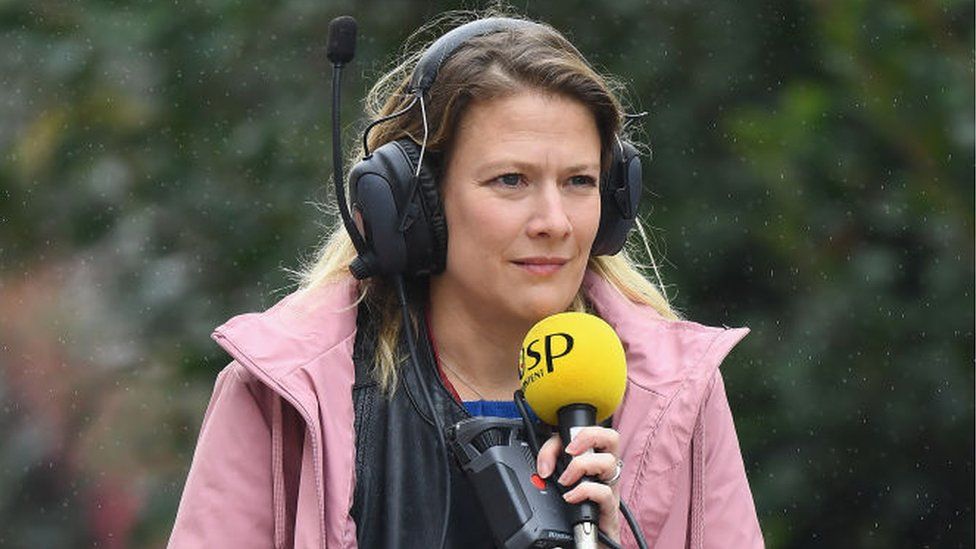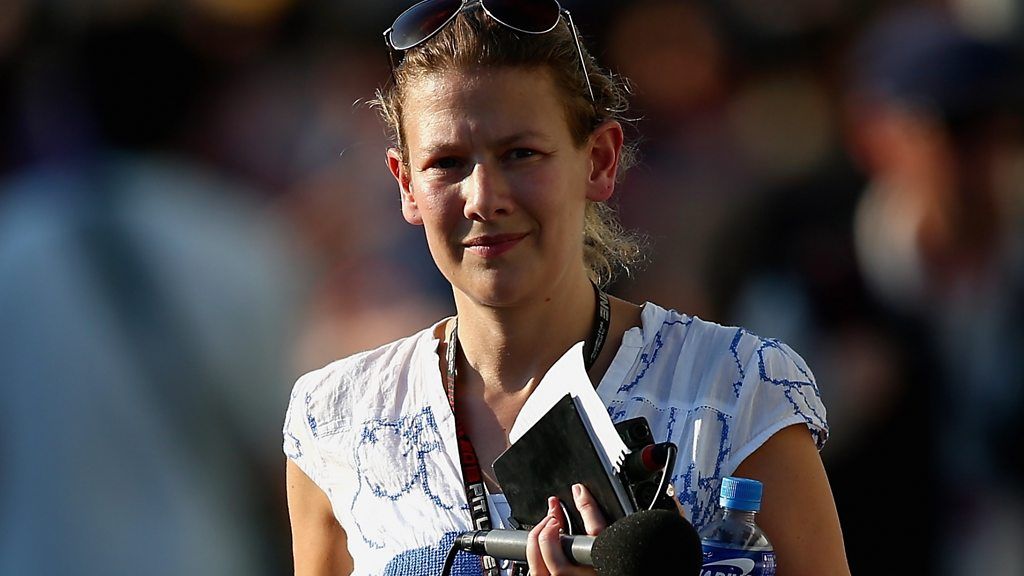This video can not be played
To play this video you need to enable JavaScript in your browser.
Broadcaster Jennie Gow has updated fans on her recovery from a serious stroke ahead of the new Formula 1 season.
The 45-year-old, who covers F1 for BBC Radio 5 Live, said she was “progressing well” since her stroke at the end of December.
In a message on the BBC’s Chequered Flag podcast, Gow added “my speech has been the thing that is most affected”.
Podcast co-host Jack Nicholls said: “We wish Jennie all the best and hope to see her again soon.”
The Southampton-born presenter, who grew up in Wargrave, Berkshire, began her broadcasting career at BBC Radio Solent before working for commercial radio stations in the south of England.
Gow has covered F1 and other motorsport events for the BBC, ITV, Netflix and Sky.

During her podcast message, she said: “I’m progressing relatively well since having my stroke at the end of December. It’s not quite the off-season I’d had in mind.
“As you can probably tell, my speech has been the thing most affected, ironically, but we’re working on that.”
After the show went out on Tuesday, the presenter tweeted: “My 30 second appearance on the Chequered Flag preview show was difficult for me to record in so many ways, but is hopefully another step forward on my road to recovery.”
Thank you so much for your messages of support. My 30 second appearance on the Chequered Flag preview show was difficult for me to record in so many ways, but is hopefully another step forward on my road to recovery. #stroke #determination #BBCF1 #F1 https://t.co/FQkxAqKM0O
— Jennie Gow (@JennieGow) February 28, 2023
Since announcing the news in January, dozens of fellow broadcasters and motorsport firms have sent messages of support.
Formula 1 Racing tweeted: “Thinking of you Jennie, and wishing you all the very best with your recovery.”
The opening race of the new season takes place in Bahrain this weekend with coverage across the BBC.


- A stroke happens when the blood supply to part of the brain is cut off, killing brain cells
- That can be due to a clot in a blood vessel, blocking the flow. Or, a vessel can burst
- There are different reasons or risk factors. People may be born with or develop weaker blood vessels. Some medical conditions such as diabetes, high blood pressure or high cholesterol, can be a factor
- Some lifestyle habits, such as smoking and eating an unhealthy diet, can contribute too
- Stroke is an emergency – rapid treatment can save lives and prevent disability. If you think someone is having a stroke, act FAST

Follow BBC South on Facebook, Twitter, or Instagram. Send your story ideas to south.newsonline@bbc.co.uk.
